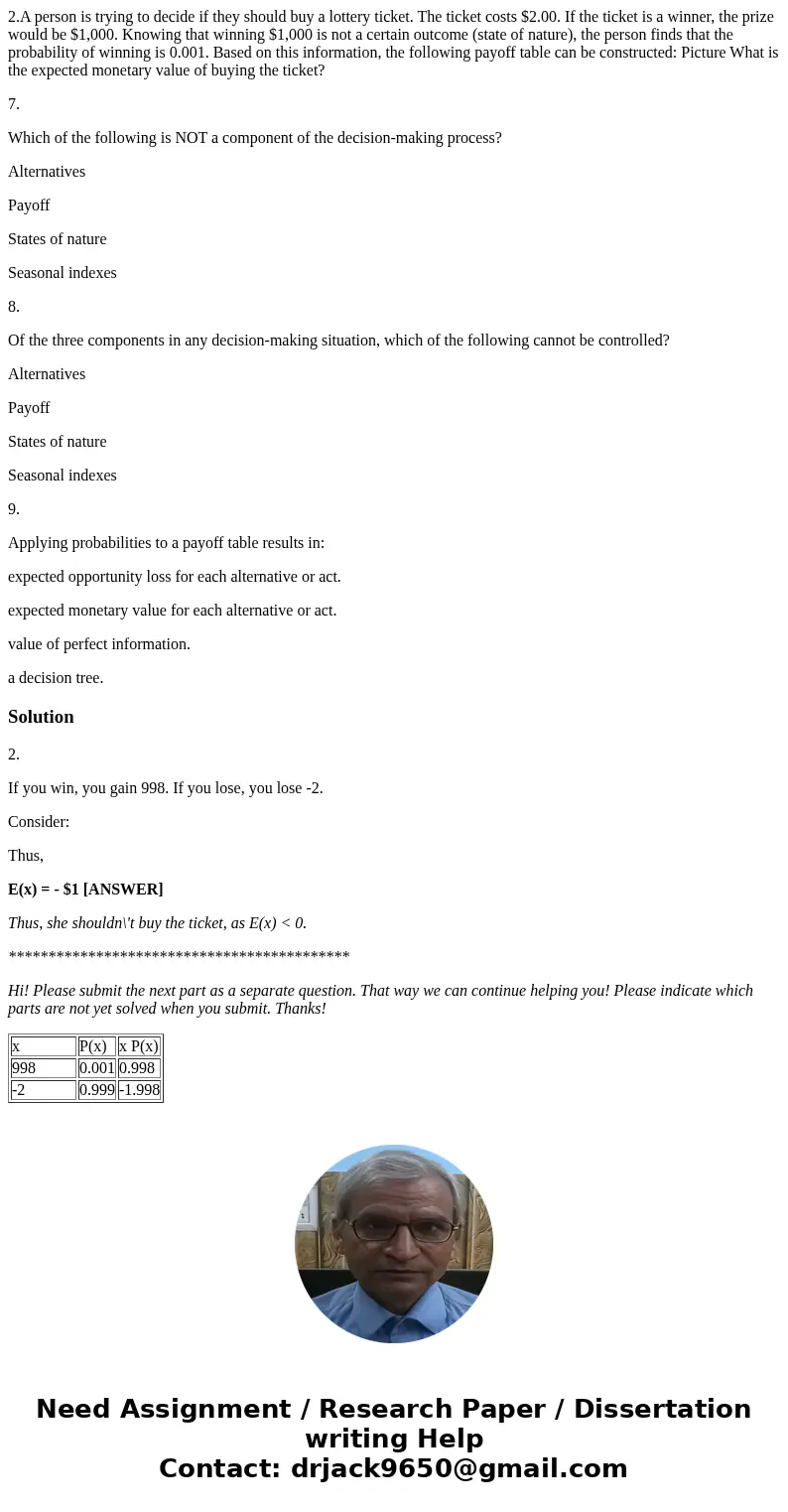2A person is trying to decide if they should buy a lottery t
2.A person is trying to decide if they should buy a lottery ticket. The ticket costs $2.00. If the ticket is a winner, the prize would be $1,000. Knowing that winning $1,000 is not a certain outcome (state of nature), the person finds that the probability of winning is 0.001. Based on this information, the following payoff table can be constructed: Picture What is the expected monetary value of buying the ticket?
7.
Which of the following is NOT a component of the decision-making process?
Alternatives
Payoff
States of nature
Seasonal indexes
8.
Of the three components in any decision-making situation, which of the following cannot be controlled?
Alternatives
Payoff
States of nature
Seasonal indexes
9.
Applying probabilities to a payoff table results in:
expected opportunity loss for each alternative or act.
expected monetary value for each alternative or act.
value of perfect information.
a decision tree.
Solution
2.
If you win, you gain 998. If you lose, you lose -2.
Consider:
Thus,
E(x) = - $1 [ANSWER]
Thus, she shouldn\'t buy the ticket, as E(x) < 0.
*******************************************
Hi! Please submit the next part as a separate question. That way we can continue helping you! Please indicate which parts are not yet solved when you submit. Thanks!
| x | P(x) | x P(x) |
| 998 | 0.001 | 0.998 |
| -2 | 0.999 | -1.998 |

 Homework Sourse
Homework Sourse